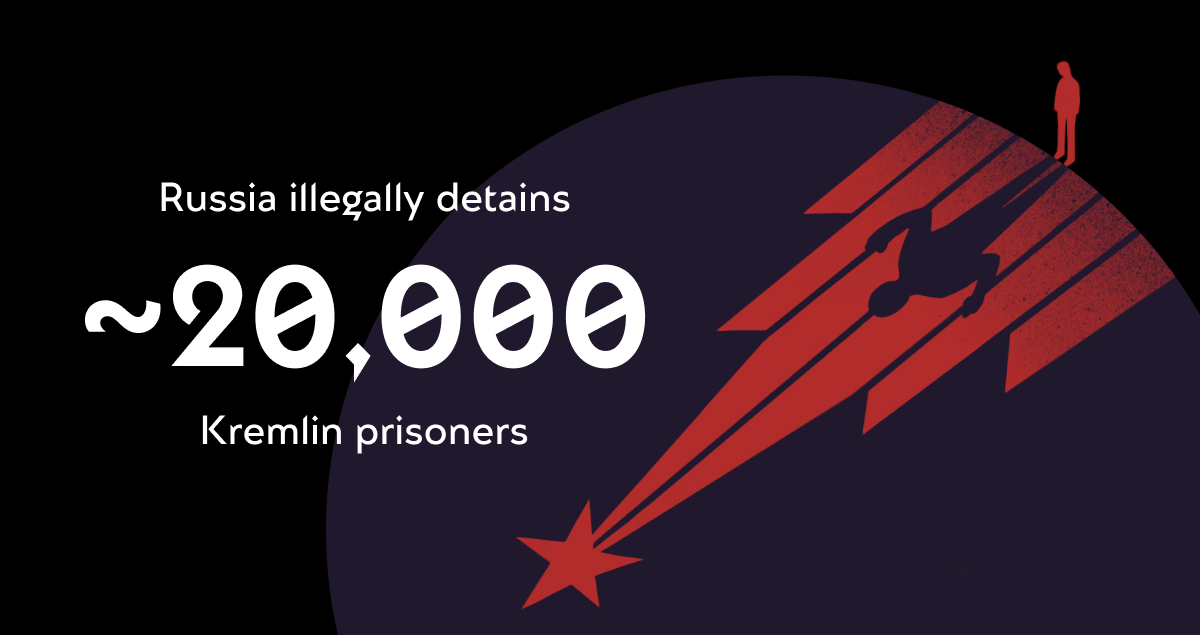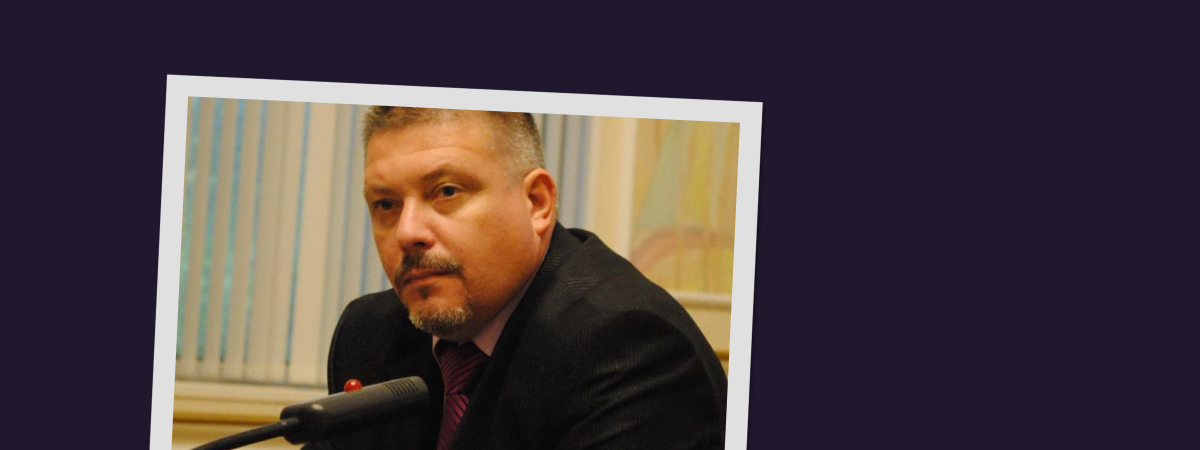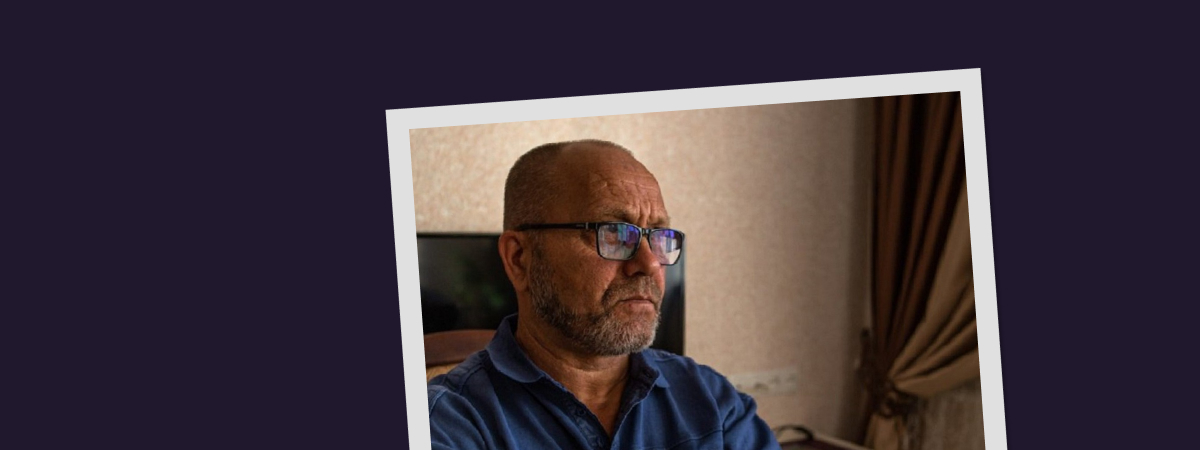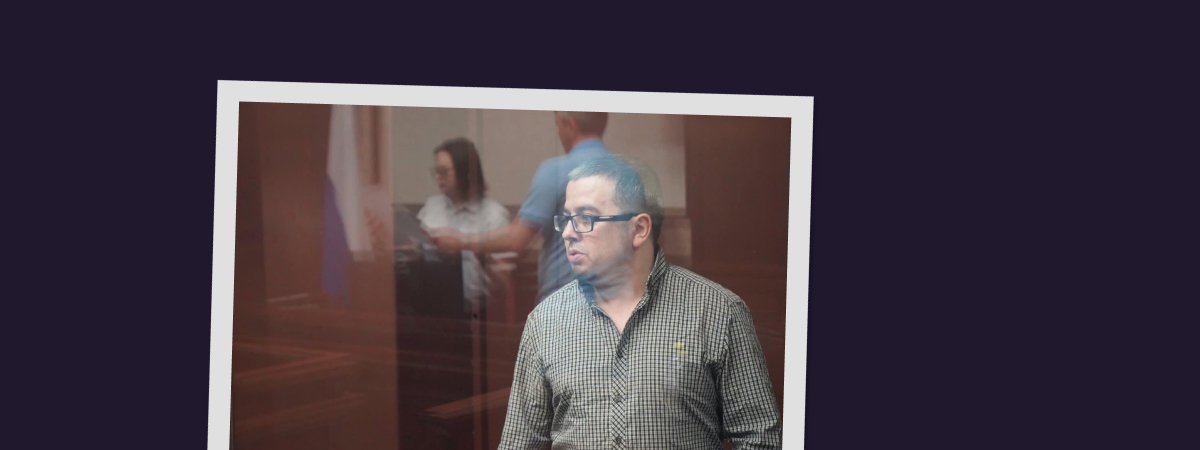~ 20, 000 Kremlin prisoners illegally detained by Russia

According to the Ukrainian Parliament Commissioner for Human Rights, Dmytro Lubinets, this is the number of civilians abducted by the Russian Federation. This estimate is based on the number of appeals received by the Commissioner from relatives of the abductees.
The Media Initiative for Human Rights has identified about one hundred places where abducted civilians are held.
The mission of the President of Ukraine in ARC confirms 182 illegally imprisoned Ukrainian citizens, 60% of whom are Qırımtatarlar.

On May 18, Russian security forces abducted Mambet Asan-Usta in the temporarily occupied Crimea but later released
Russians illegally stopped the car of Crimean Tatar Mambet Asan-Usta, kidnapped him, forced him to defame himself, and later released — Crimean Solidarity.
The occupation patrol service stopped Mambet Asan-Usta's car. Then he was taken to Kirovske, claiming that the patrol police officers did not have a form for drawing up an administrative report on the lack of car insurance.
In Kirovske, he was then seized by masked security forces. They put a bag on him and took him to an unknown location, most likely to Simferopol. There, he was interrogated and forced to defame himself for his involvement in damaging the railway in Chystenke.
As a reminder, on May 18, a train derailed in the temporarily occupied city. Asan-Usta was in Chystenke that day for work but had nothing to do with the sabotage.
Meanwhile, relatives and human rights activists began to search for the abductee. Eventually, the Russians took him to a petrol station and let him go.

Kremlin prisoner Volodymyr Dudka will not receive medical care despite chronic illnesses.
Volodymyr Dudka, who has been illegally detained by the Russians since 2016, is held in a Russian colony and suffers from chronic illnesses without medical care.
His girlfriend, Maryna Trofimenko, told this to the Association of Relatives of Political Prisoners of the Kremlin.
Dudka has a stomach ulcer, hypertension, prostate adenoma and urolithiasis. Two years ago, the prisoner developed an itchy rash with pustules. Symptomatic treatment allows him to temporarily overcome the disease, but it keeps returning. As a result, the Russians do not thoroughly examine the 58-year-old man, who has been held in the colony for three years.
Before that, the prisoner spent four years in pre-trial detention centres. Then, in 2016, Russians detained him in the temporarily occupied Crimea on trumped-up charges of preparing sabotage.

Kremlin prisoner Dmytro Shtyblikov's teeth crumble, and his eyesight deteriorates
Dmitriy Shtyblikov has been in Russian prisons since 2016 but remains optimistic despite his health problems — his daughter Tetiana Shtyblikova told the Association of Relatives of Political Prisoners of the Kremlin.
"He doesn't have enough vitamins because the food in the colony is terrible, and the prison store doesn't have proper food," Tetiana said. "Consequently, he has developed hypertension, crumbling teeth, sore gums, and deteriorating eyesight.
This is the second time that the Russians have convicted Shtyblikov: in 2016, he was sentenced to 5 years on trumped-up charges of preparing sabotage, and in 2021, another 19.5 years on trumped-up charges of espionage.
Despite his health problems and the harsh detention conditions, Shtyblikov remains optimistic and hopes for an exchange.

Russians open two administrative cases against Crimean Tatar human rights activist Abdureshit Dzhepparov
Russian security forces in the temporarily occupied Crimea opened two administrative cases against human rights activist Dzhepparov on charges of actions he could not commit because he was serving a sentence in a previous case — the ZMINA Human Rights Centre.
He was charged with administering the Facebook page 'Qırım Gayesi'. Dzhepparov does not deny being involved in creating this human rights initiative but does not administer it.
Dzhepparov was held under another administrative arrest from April 25 to May 7. During this time, five publications appeared on the Qırım Gayesi page, which Dzhepparov could not write without the Internet in the special detention centre.
The Qırım Gayesi, human rights initiative, believes that the security forces want to use the reputable human rights activist Dzhepparov as a hostage to force the initiative to stop its activities.
On May 23, Russian security forces detained a Jehovah's Witness in the temporarily occupied Feodosiia
In the temporarily occupied Feodosia, Russian security forces detained Jehovah's Witness Maksym, but the charges against him remain unknown.
The European Association of Jehovah's Witnesses reports the detention.
Russian security forces searched the home of Jehovah's Witness Maksym Zinchenko. Then he was taken to Aqyar. The Russians tried to force Zinchenko's wife to testify against him.
It is currently unknown what charges have been brought against Zinchenko.
The Russians persecute members of all religious organisations not controlled by the regime. They are usually accused of 'illegal missionary activity' or 'extremism'.

On May 24, the Russian court announced the verdict in the case of Ernest Seitosmanov — 18 years in prison
A court in Rostov-on-Don sentenced Crimean Tatar Ernest Seitosmanov to 18 years in prison on trumped-up terrorism charges, using planted books and anonymous witnesses as "evidence" — Crimean Solidarity.
Security forces detained Seitosmanov in February 2022. The Russians fabricated "terrorism" charges against him. This is how they qualify any ties with the Islamic party Hizb ut-Tahrir, which is legally active in Ukraine and many EU countries.
The accusation against the Crimean Tatar was based on books planted on him and witness statements obtained under pressure or given anonymously.
The Russian court sentenced Seitosmanov to 18 years, four of which he will spend in jail with the most severe conditions.
Previously, Russians sentenced his brother Enver Seitosmanov to 17 years in prison.


